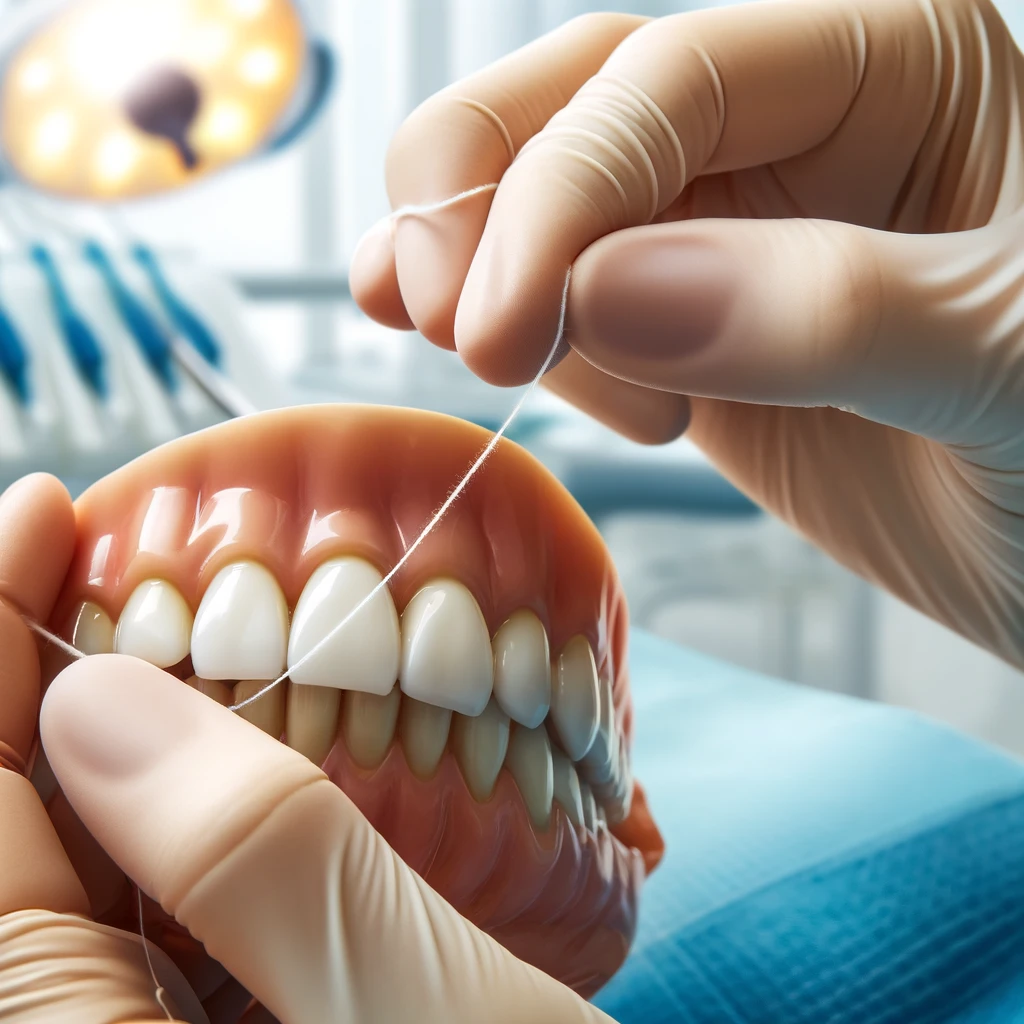

What Are the Disadvantages of Dental Crowns?
What are the disadvantages of dental crowns? While dental crowns can restore the function and appearance of damaged teeth, they also come with potential downsides such as increased sensitivity and the risk of needing future repairs.
Proper Brushing Techniques

Maintaining good oral hygiene is crucial, especially if you have dental crowns. Proper brushing techniques can help extend the life of your crowns and prevent further dental issues. Use a soft-bristled toothbrush and fluoride toothpaste to gently clean your teeth and crowns. Make sure to brush at a 45-degree angle to your gums, using short, gentle strokes. Don't forget to brush all surfaces of your teeth, including the outer, inner, and chewing surfaces. In addition to brushing, it's essential to floss daily to remove plaque and food particles from between your teeth and around your crowns.
Regular dental check-ups are also important to ensure that your crowns remain in good condition. For more information on the importance of dental crowns and their benefits, you can read our detailed post on Why Are Dental Crowns Needed and What Are They?. By following these proper brushing techniques, you can maintain a healthy smile and protect your dental investments.
Flossing Around Crowns

Maintaining the longevity of your dental crowns involves proper oral hygiene practices, including flossing. Flossing around crowns is essential to prevent plaque buildup and ensure the health of the surrounding gums. It helps in removing food particles and bacteria that can lead to gum disease or decay around the crown area. Regular flossing can contribute significantly to the overall health of your dental crowns and natural teeth. It's important to be gentle while flossing around crowns to avoid damaging the crown or irritating the gums.
Ensuring that you floss correctly can help maintain the integrity of your dental work and promote a healthy mouth. For more information on dental crowns, visit our Westfield Dental Crown Services page.
Avoiding Hard Foods
One of the notable disadvantages of dental crowns is the need to avoid hard foods. Consuming hard foods can put excessive pressure on the crown, potentially leading to damage or dislodgement. This limitation can be inconvenient for individuals who enjoy crunchy snacks or have a diet that includes hard foods. The necessity to steer clear of such items can be seen as a drawback, as it requires a conscious effort to protect the integrity of the dental crown and maintain oral health.
Regular Dental Checkups
Regular dental checkups are essential for maintaining the longevity and effectiveness of dental crowns. These routine visits allow your dentist to monitor the condition of your crowns and ensure they are functioning properly. Without regular checkups, minor issues with your crowns can go unnoticed and potentially lead to more significant problems, such as decay or damage to the underlying tooth structure. For more information on maintaining your dental health, visit Westfield Smiles and consult with a Westfield Dentist.
Using Mouthguards for Protection
One of the potential disadvantages of dental crowns is their susceptibility to damage, especially for individuals who engage in activities that put stress on their teeth. Using mouthguards can be a crucial measure to protect dental crowns from chipping, cracking, or becoming dislodged during physical activities. This protective gear can help mitigate the risk of damage, ensuring the longevity and durability of dental crowns.
Managing Teeth Grinding
One of the significant disadvantages of dental crowns is their susceptibility to damage from teeth grinding, also known as bruxism. If you grind your teeth, the constant pressure and friction can wear down or even crack your dental crowns over time. To mitigate this risk, using mouthguards for protection is highly recommended. Mouthguards act as a barrier, absorbing the impact and reducing the stress on your crowns. Custom-fitted mouthguards, in particular, offer the best protection as they are tailored to fit your teeth perfectly, ensuring maximum comfort and effectiveness.
By incorporating a mouthguard into your nightly routine, you can extend the lifespan of your dental crowns and maintain your oral health.
Choosing the Right Toothpaste
When considering the disadvantages of dental crowns, it's essential to also think about how to protect your investment. Using mouthguards for protection is a crucial step, especially if you engage in sports or have a habit of grinding your teeth at night. Mouthguards can help prevent damage to your dental crowns, reducing the risk of chipping or cracking. Additionally, choosing the right toothpaste plays a significant role in maintaining the longevity of your crowns. Opt for non-abrasive toothpaste that is specifically designed for dental work to avoid unnecessary wear and tear.
By combining the use of mouthguards and the right toothpaste, you can significantly extend the life of your dental crowns and maintain optimal oral health.
Recognizing Signs of Damage
One of the key disadvantages of dental crowns is their susceptibility to damage, which can compromise their effectiveness and longevity. Using mouthguards for protection is essential, especially for individuals who engage in contact sports or have a habit of grinding their teeth at night. Mouthguards act as a protective barrier, absorbing and distributing the force of impacts that could otherwise crack or chip the crown. By wearing a custom-fitted mouthguard, you can significantly reduce the risk of damage, ensuring that your dental crown remains intact and functional for a longer period.
Regularly inspecting your crown for any signs of wear and tear, such as cracks, chips, or discomfort, can help you address issues promptly and maintain optimal oral health.
Maintaining Oral Hygiene Routine
Using Mouthguards for Protection: One of the often-overlooked disadvantages of dental crowns is the necessity of using mouthguards for protection, especially if you engage in sports or grind your teeth at night. Dental crowns, while durable, are not invincible and can be damaged by excessive force or impact. Wearing a mouthguard can help protect your crowns from chipping, cracking, or becoming dislodged. However, this adds an extra step to your oral hygiene routine, which some may find inconvenient. Additionally, ensuring that your mouthguard is clean and properly fitted is crucial to avoid any potential oral health issues, such as bacterial buildup or discomfort.
Conclusion
If you have any questions or need more information, call us at 908-233-9280 or check out our Google Maps reviews.
contact us
Call 908.233.9280 or request an appointment online to set up your first visit.
